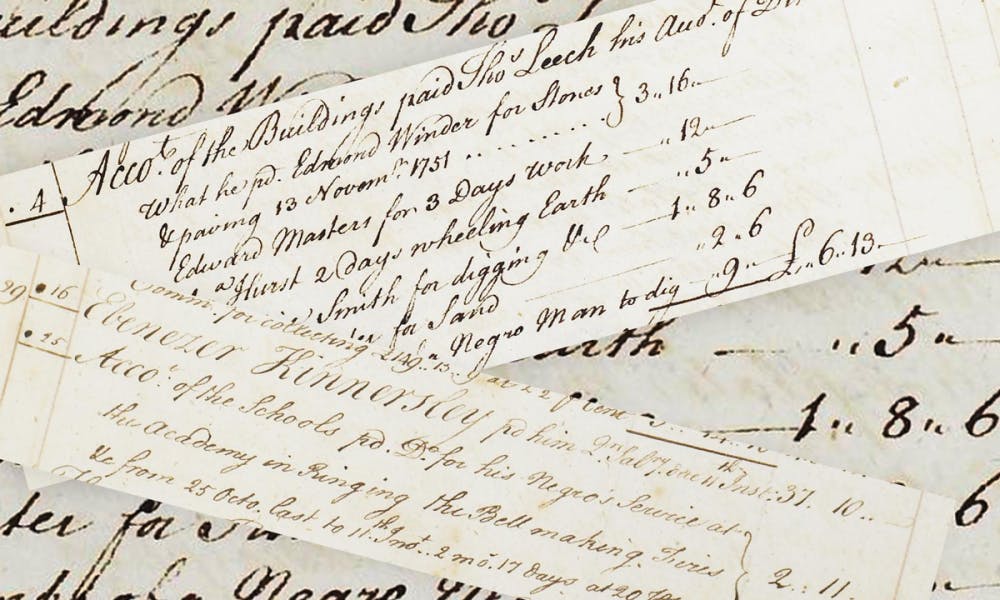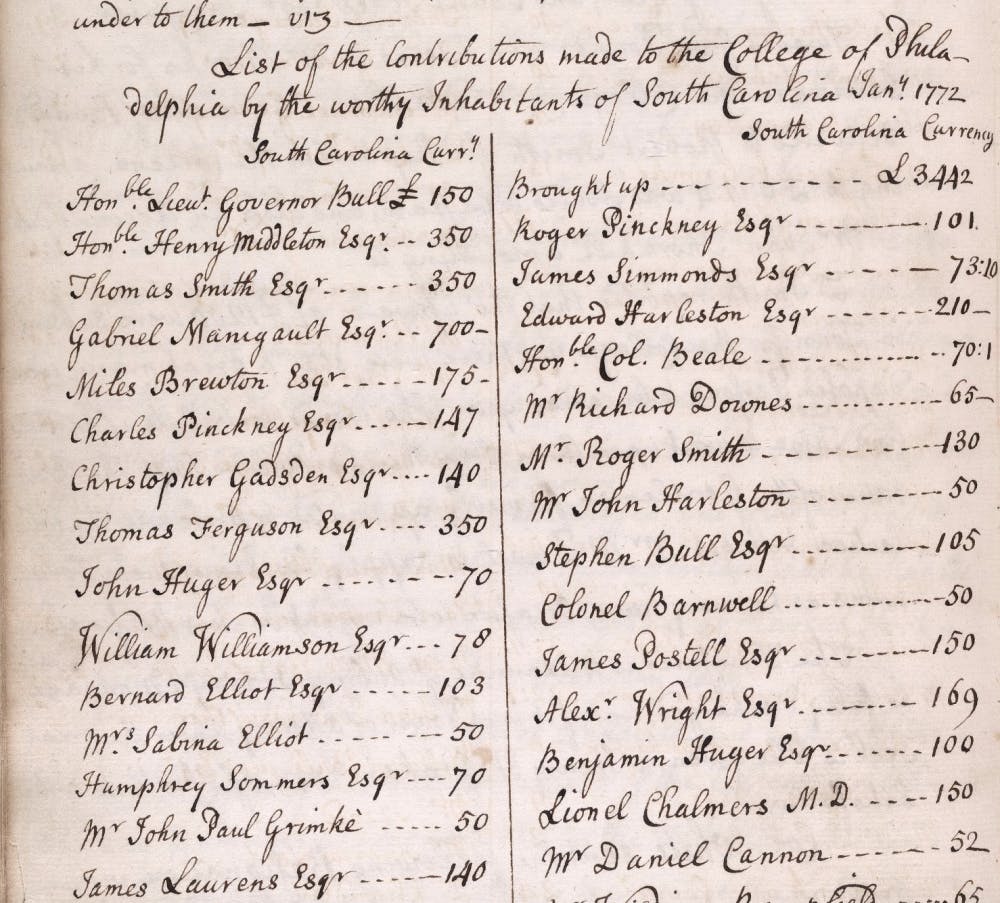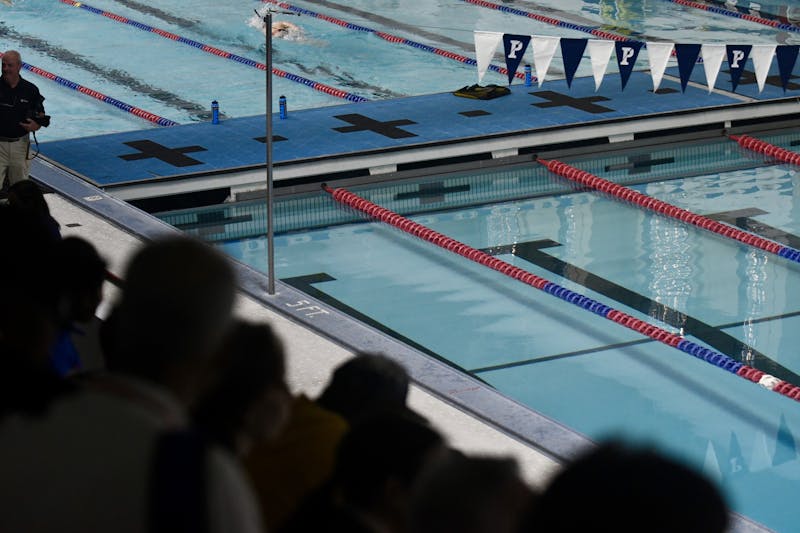
From Clay Graubard
College junior Clay Graubard says University officials tried preventing him from publishing his semester-long research findings on Penn's connection to the slave trade. His research was finally published, but Graubard said not without taking great steps to put pressure on the administration.
After working with the University Archives and Records Center throughout the semester, Graubard said he sent early drafts to University Archivist Mark Lloyd who then forwarded them to Penn Chief Diversity Officer and Senior Vice President for Institutional Affairs Joan Mitchell, who is a member the Provost's working group to investigate these ties to slavery. Graubard said he wanted feedback on his research from the Provost's working group, which was created this semester in response to the findings of the Penn Slavery Project.

Graubard said he was notified on April 17 for the first time that his research could not be published at the time, and he further said he was given no reason for the University's decision.
Lloyd declined to comment on this story. Mitchell did not respond to request for comment on this story.
“I believe that the University has been treating this subject as an issue that needs to be contained and controlled rather than explored," he said of the research on Penn's ties to slavery. "I do not believe this is how an institution with the history and prestige that Penn has should be operating."
After this notification, Graubard said he emailed Mitchell directly to request an explanation for their reasoning not to allow the research to be published at the moment. Mitchell responded saying they could only discuss the issue further in two weeks from the date, which would be in the middle of finals.
Feeling dissatisfied with this response, Graubard said he decided to attempt to pressure administrators to help publish his paper by hand-delivering a letter to Penn President Amy Gutmann's office. He began reaching out to reporters to discuss these complications as well.
Graubard also said he contacted other administrators like Gregory Rost, Adam Michaels, Leslie Kruhly, and Leah Popowich.
On April 20, Graubard said he was told by Mitchell that his paper would be released through UARC with the stipulation that they would be posted simultaneously with the other five research papers from students in the Penn Slavery Project.
While the Penn Slavery Project had been researching this topic since last semester, Graubard said he decided to work independently to maintain his autonomy.
“I felt I could contain complete control of my research, my work, and my schedule,” he said. “I would go to archives basically four days a week whenever I could, at whatever times I could.”
Instead of waiting for the University, Graubard said he decided to 'soft-publish' his research paper online to Medium.

"My paper has been finished since last Monday and was supposed to be published this past Thursday, April 19," he wrote in the introduction to the paper. "This had been the plan for weeks — and the general understanding for months — but complications arose last Tuesday which prevented the paper’s release."
"Last Friday, a resolution was made and today [April 23] my paper was published through the University Archives and Records Center," he continued.
His findings overlap with those of the Penn Slavery Project which presented its expanded findings on the University's ties to slavery on Monday.
Both Graubard and the student group showcase evidence that the University reimbursed a Penn professor for the cost of enslaved labor for more than a decade. They also demonstrated the University's participation in fundraising tours in the late 18th century which raised money from wealthy individuals, including slave owners.
Graubard's paper also states that some of the builders involved in the construction of the University were slaveholders and documents eight of the founding trustees' ties to slavery.
The Daily Pennsylvanian is an independent, student-run newspaper. Please consider making a donation to support the coverage that shapes the University. Your generosity ensures a future of strong journalism at Penn.
Donate






